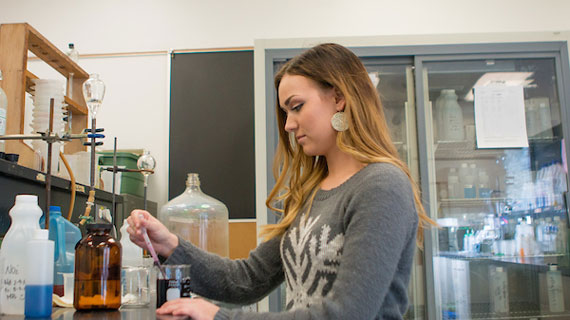The Federal Work-Study (FWS) Program provides a way for students to earn money for their education by working at a part-time job while in college. There are about 3,400 colleges and career schools participating in the FWS Program.
Colleges have varying amounts of Federal funds available to disburse to students through the FWS Program. The reason that there are colleges that don’t participate in the Program is that they may not have the Federal funding needed to pay students. Check with a college’s website or financial aid office to find out if it participates in the Program.
Applying for the FWS Program
The Program is limited to students with a financial need as determined by the FAFSA process, so you need to submit a FAFSA form to participate in the FWS Program as you do any Federal student financial aid program. You may open a FAFSA account online as early as October 1 of your junior year of high school at fafsa.gov or studentaid.gov.
On the FAFSA form, there is an option that asks if you would like to be considered for the FWS Program. Select this option. Submit your FAFSA as soon as possible on or after June 30 as a rising senior because colleges have limited FWS funds and must decline students who apply after their funds are depleted. Get your FAFSA in early!
In order to be eligible for FWS, your Expected Family Contribution on the FAFSA must be less than the cost of attendance at the college in which you enroll. The amount of FWS aid that you may receive depends on the total amount of Federal student aid that you receive through all Federal programs combined.
On-Campus and Off-Campus Jobs
There are many different types of jobs that qualify for the Program, and they vary significantly from one college to another. Jobs are either on-campus or off-campus. If you are assigned a campus job, you’ll be working for the college itself. Employment on campus can include such jobs as research assistant, library or student center employee, or administrative assistant in a departmental office. According to FWS rules, an effort must be made by the college to place you in a job that will enhance your exposure to your major field of study. Such a job placement is not guaranteed, however.
If you work off-campus, your employer may be a private nonprofit organization or a public agency. If so, the work performed must be in the public interest. At least 7% of a college’s FWS jobs must provide help to the community. Examples are reading tutors for young children, literacy tutors for adults, and mathematics tutors at local public schools. With the approval of the Department of Education, some colleges have agreements with private for-profit employers for FWS jobs.
A college may set their own FWS restrictions pertaining to your GPA. For example, if your GPA slips below a certain point, your college may not allow you to participate in the FWS Program until it rises above that point again.
You’ll earn at least the Federal minimum wage. You may earn more depending on the type of work, the skills required, and your time in position. The total funding of your award depends on your level of financial need and the college’s FWS funding.
How You Will Be Paid
How you will be paid depends partly on whether you’re an undergraduate or graduate student. Below is a summary of the rules affecting wages and taxes.
• If you are an undergraduate student, you’ll be paid hourly wages.
• If you are a graduate student, you’ll be paid either by hourly wages or salary, depending on the type of work that you do.
• Your college must pay you at least monthly.
• Your college must pay you personally unless you request in writing that your earnings are to be applied directly to education-related expenses such as tuition, fees, and room and board.
• Your earnings can’t exceed your total FWS award, which is based on your level of need.
• When assigning work hours, your employer will consider your class schedule and activities.
• You may work up to a maximum of 8 hours per day and 20 hours per week while school is in session. You may work up to 40 hours per week during fall and spring breaks if you are behind on your hours and your supervisor approves the adjusted schedule.
• FWS earnings are taxable just like earnings on any job. You will be required to submit an IRS Form W-4 Employee Withholding Allowance Certificate when you start working. This will determine how much income tax is withheld from your earnings.
Eligibility for the FWS Program
Although there are certain exceptions, foreign students don’t generally qualify for the FWS Program. Students must be one of the following to receive Federal student aid of any type:
• A U.S. citizen,
• A U.S. national (includes natives of American Samoa or Swains Island), or
• A U.S. permanent resident with an I-151, I-551, or I-551C (Permanent Resident Card).
At many participating colleges, an FWS award does not guarantee you a job. You need to find a vacancy in a work-study job, apply to it, and be interviewed successfully before the job is yours. Some colleges will match you with potential employment offers but will require that you apply to and interview for the jobs. You are advised to get in touch with your college regarding their FWS requirements and procedures.


Recent Comments